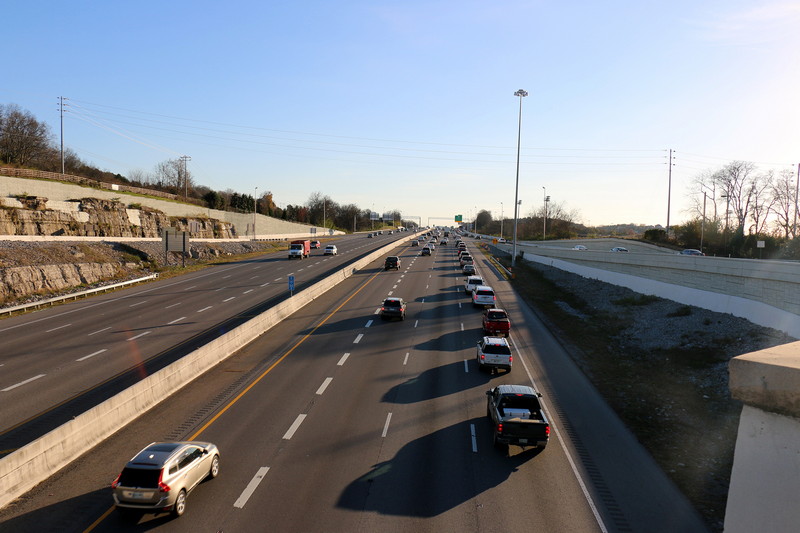It will emerge as nothing short of a complex math problem when it comes to creating the plan to fix Tennessee’s infrastructure and roads.
Or at least that’s how Williamson’s legislators anticipate the debate of how to move forward with a backlog of projects and a desperate need for new roads statewide.
“We live in a world where 99 people in the House think the other 98 people are wrong,” Majority Leader and Thompson’s Station Republican Glen Casada said.
He and the entire Williamson delegation answered questions on a broad range of topics Friday morning at the first Public Affairs Roundtable of the legislative session. With that state sitting with more than a billion in surplus and a 21-cents-per-gallon gas tax rate untouched for two decades, arguments of how to combat the growing infrastructure issue will come from a number of directions.
“You have House members looking at $957 million new dollars,” Casada said. “They are putting forth ideas. We have to look at what’s possible and not probable. How we do it dealing with 99 people – it takes a little finesse. It always works. It’s just a process.”
Williamson legislators will have a say in what’s decided from the very beginning until the final vote on the House floor. Freshman Rep. Sam Whitson (R-Franklin) sits on the Transportation Subcommittee, where legislators will hash out a good bulk of the details.
“We cannot put a Band Aid on this problem and kick the can down the road,” Whitson said. “Right now, we are just maintaining, not building roads. Everyone has skin in the game, but you have to do what it is right for the state and the future. Some people are trying to divide this fight between rural and urban. It’s going to be tough. There’s going to be some give and take.”
And it’s already gotten somewhat complicated with at least five plans anticipated to emerge on the subject.
Casada said he’s in favor of one of them, which is a plan he considers “simplistic.” Under the this option, a quarter of 1 percent of the state general sales tax would be solely dedicated to the state transportation fund, creating a reliable and sustainable funding source but does not raise taxes. In total, the plan would transfer $291 million per year to the Tennessee Department of Transportation and local governments to be used on road construction projects and infrastructure.
Casada also said Transportation Committee Chairman Barry Doss (R-Leoma) was contemplating a plan, which hasn’t been filed. John Ray Clemmons (D-Nashville) told the Nashville Post in late December he was considering filing an alternative gas tax plan, which would increase the gas tax and create a solution for mass transit funding.
Gov. Bill Haslam has his own plan titled the “Improve Act.” It aims to help improve the state’s transportation infrastructure, with the hope of creating sustainable road funding for Tennessee. The legislation cuts $270 million annually in taxes. But it will also include a 7-cent-per-gallon increase on the gasoline tax, which hasn’t been raised since the late 1980s, and a 12-cent increase on diesel fuel. But Casada alluded if it was presented as is today, it would fail 5-3 in committee.
“But how many of you would be in favor of a gas tax increase?” Rep. Charles Sargent asked the crowd on Friday.
Many in the room full of more than 60 shot up their hands in the air.
Emily West covers Franklin, education, and the state legislature for the Franklin Home Page. Contact her at [email protected]. Follow her on Twitter via @emwest22.



















